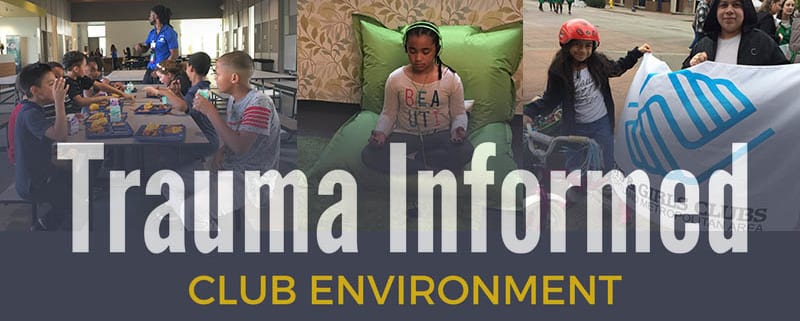Serving All Youth through Trauma Informed Care
In our mission to empower all youth, especially those who need us most, we recognize that a high proportion of the children and families in the communities we serve have experienced trauma or adversity. Trauma is any experience that can overwhelm. It can overpower your ability to cope with life’s difficulties, especially in the absence of supportive environments and lacking supportive relationships. We must understand and address the consequences of the incredible challenges our communities face in the form of poverty, violence, racism, substance use, victimization, and more. These traumatic experiences can have long-term, lasting impact that spreads across generations. That’s why the Boys & Girls Clubs of Portland Metro, as an organization, is seeking to create a measurable difference in the lives of youth through our dedication to trauma informed care, equity, and revitalization of our Youth and Family Services program. We want to ensure we are putting supports in place for every youth, family, and community to thrive.
The Trauma Informed Approach
The adverse experiences faced by many of our families calls for a special set of services and attentions geared towards reinforcing aspects of their lives that may have been stripped away: safety, trustworthiness, transparency, peer support, collaboration, empowerment, informed choice, as well as cultural, historical, and gender equity. These form the basic principles of Trauma Informed Care, an approach that acknowledges and understands the struggles our communities face and allows us to create policies and services that better serve trauma-impacted children and families. Whether a child has an incarcerated parent, lives with food scarcity, has experienced discrimination because of the color of their skin, gender, or sexual orientation, or grappled with some other trauma, we believe that it is our responsibility to do our best to provide them with what they need to be successful and empowered to reach their full potential.
Empowering Youth to Reach their Full Potential
How can we help empower our kids and our communities to advocate for themselves, to overcome life’s adversities, and to be caring, productive community members? The answer is deceptively simple: building resilience. Resilience means youth can deal with the difficulties they face. It is the key skill in overcoming adversity. We can foster resilience by providing positive, healthy, consistent relationships with adults and programs. Research shows that a strong relationship with a safe, consistent mentor is the number one most important factor in helping heal trauma, build resilience, and move toward healing.
Club programming builds resilience in youth through dedicated staff, mentoring, safety, problem solving, choices, and opportunities. Our Youth & Family Service Program expands on that, screening youth for risk factors, enrolling them in targeted programming, creating individualized plans, and connecting youth and families with counseling and resources. This program seeks to intentionally provide upstream prevention for our at-risk youth and families, allowing them to thrive.
The Boys & Girls Clubs has been building resilience in youth for a long time. With our new focus on trauma informed care, we can it do better. By standardizing practices, voicing and sharing the things we’ve already been doing, and setting the intention of building resilience and healing trauma at our forefront, we believe we can build stronger, safer, more empathetic communities in Portland and beyond.
How We Approach Trauma Informed Care
- There is a pervasive need for community services that acknowledge trauma, equitably and intentionally seeking to build resilience.
- Trauma inhibits the ability to cope with life’s difficulties.
- By building resilience, we can help heal trauma.
- The number one factor in building resilience is consistent, safe, supportive relationships.
- Our Youth & Family Services program creates individualized plans for at-risk youth and their families that can help them access vitally needed services, overcome their traumatic experiences, and thrive.
- The intentional, structured approach provided by trauma informed care can help dismantle barriers faced by families and set our youth up for success.



